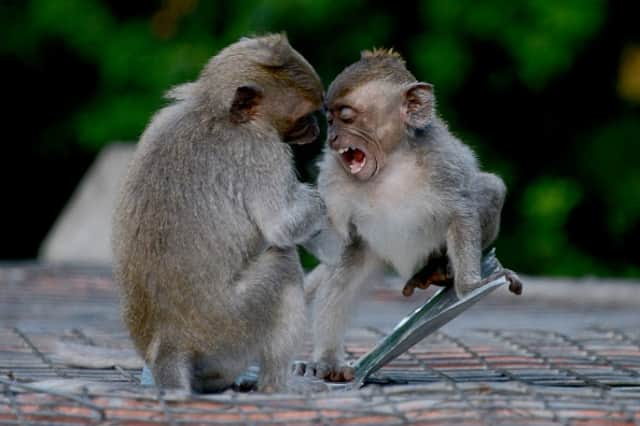Man infected with deadly B virus after monkey attack in Hong Kong country park


A 37-year-old man is in critical condition in a Hong Kong hospital after being attacked by monkeys in a country park. He has tested positive for the B virus, becoming the first person in the city to contract this deadly infection.
Authorities in Hong Kong are investigating the incident and warning the public against touching or feeding wild monkeys. The Centre for Health Protection issued a statement on Wednesday urging anyone injured by monkeys to seek immediate medical attention.
Advertisement
Hide AdAdvertisement
Hide AdThe man was taken to hospital on March 21 with symptoms of fever and decreased consciousness. According to family members, he was injured while visiting Kam Shan Country Park, a popular hiking spot known for its population of wild monkeys, in late February.
This case marks the first instance of this rare infection in Hong Kong, which can lead to severe brain damage or death if left untreated, according to a spokesperson for the Health Department. While previous cases of monkey bites or scratches have caused illness in the US, Canada, Japan, and mainland China, transmission of the pathogen - also known as the herpes simiae virus - between humans is uncommon, as stated in the release.
What is the B virus?
According to Centers for Disease and Control Prevention, B virus infection is extremely rare, but it can lead to severe brain damage or death if you do not get treatment immediately. People typically get infected with B virus if they are bitten or scratched by an infected macaque monkey, or have contact with the monkey’s eyes, nose, or mouth.
Comment Guidelines
National World encourages reader discussion on our stories. User feedback, insights and back-and-forth exchanges add a rich layer of context to reporting. Please review our Community Guidelines before commenting.
